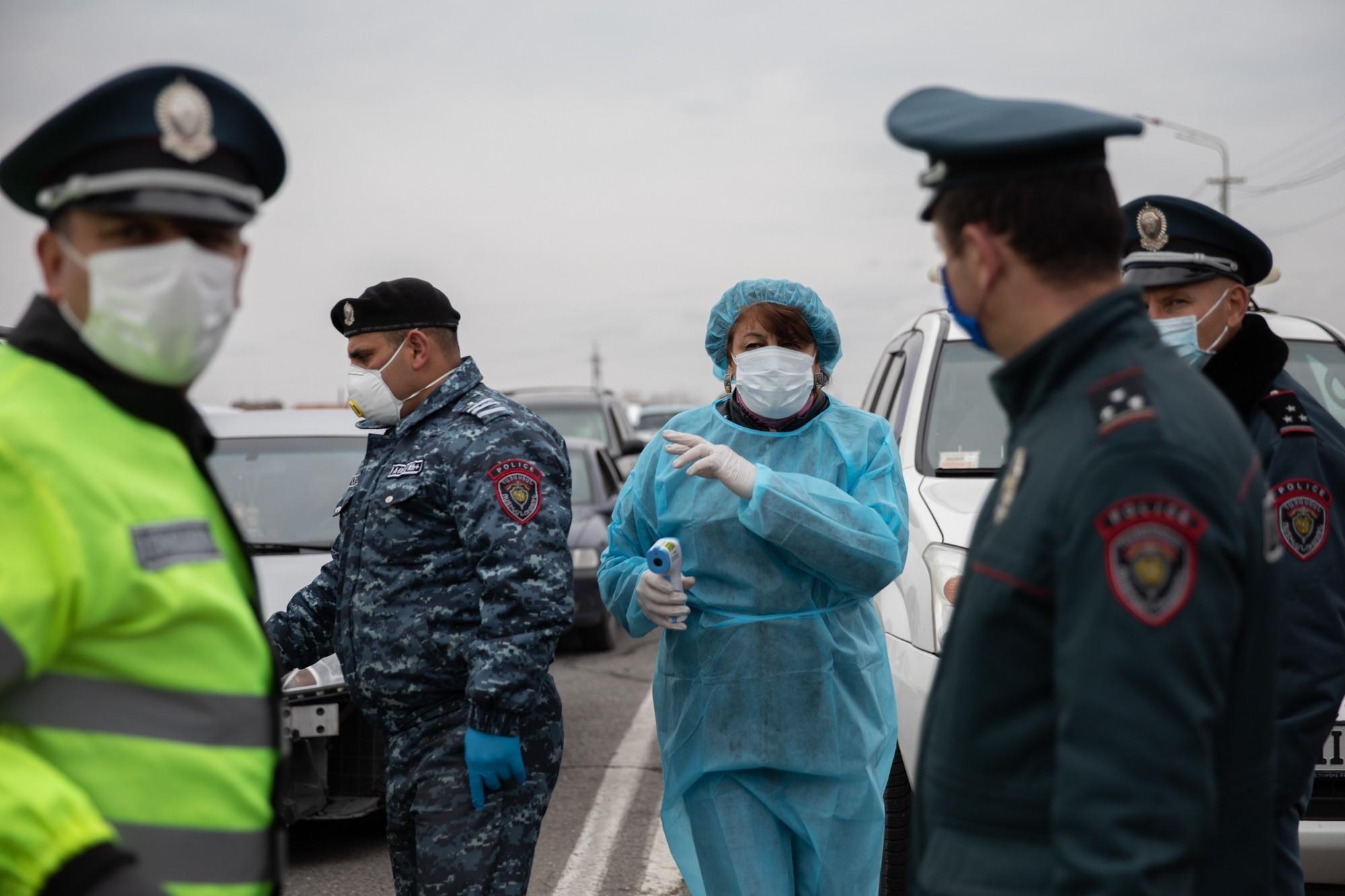
Armenia: COVID-19 Testing Strictly Regulated; Some Complain They Show Symptoms but are Refused
There are certain requirements to be meet before individuals in Armenia can get tested for COVID-19.
The Ministry of Health advises that if you have been overseas of late, if you have headaches, flu, fever, cough, or difficulty breathing, you are instructed to call your local polyclinic and inform your doctor (hotline number 8003 and 060838300).
Most cases of coronavirus infection registered in Armenia are epidemiologically related to Etchmiadzin.
Recently some Etchmiadzin residents have contacted Hetq to complain that while they show some coronavirus-like symptoms (fever, dry cough, difficulty breathing, fatigue) and have called the Ministry of Health hot line, they have been refused tests since they haven’t recently arrived from “unsafe” countries and haven’t been in close contact with those confirmed to have the virus.
Those not meeting these requirements will not be tested even if they pay.
The ministry suggested that these people self-isolate.
Hetq contacted the Ministry of Health to report these complaints.
We informed the Ministry of Health about citizens' alarms.
Lilit Babakhanyan, Head of the Public Relations Department of the Ministry of Health, explained the guidelines in place for testing.
"Our advice is as follows: According to WHO (World Health Organization) norms, the first action of a person should be self-isolation, and the second is to wait at least 14 days. Within 14 days, some symptoms should appear. If that person does not have a fever, fluctuation, cough, etc., then there is no point in testing. But if something changes, if other health symptoms appear, the person should first contact their local polyclinic doctor and report the situation. The physician, after an examination, will instruct the person as to the next step. The first step, however, if a person isn’t sure whether they have been in contact with a suspected carrier, is 14 days of self-isolation."
Babakhanyan emphasized that an important factor, in addition to showing the above symptoms, in deciding whether a person should be tested is whether the individual had contact with a carrier or with a person who’s return from an “unsafe” country.
“To assess whether a test is called for, we look at several things in tandem. There must be a person’s medical history, the circle of contact, etc. True, many people get upset They say they travel by public transport, but for the virus to spread an infected person must sneeze. There must be close contact of less than one meter. There has to be some reason for the virus to have jumped from one organism to another,” Babakhanyan says.
As to the observation that many do not know how to self-isolate when they live in the company of others, health ministry staffers said that people should observe sanitary standards, social distancing, use different utensils and disinfectants, and cover their mouths when they cough.
The WHO also recommends strictly following these guidelines, noting that the coronavirus may show no specific symptoms, and the infected person may not realize that he or she is a carrier and may infect others.
 Videos
Videos Photos
Photos




Write a comment